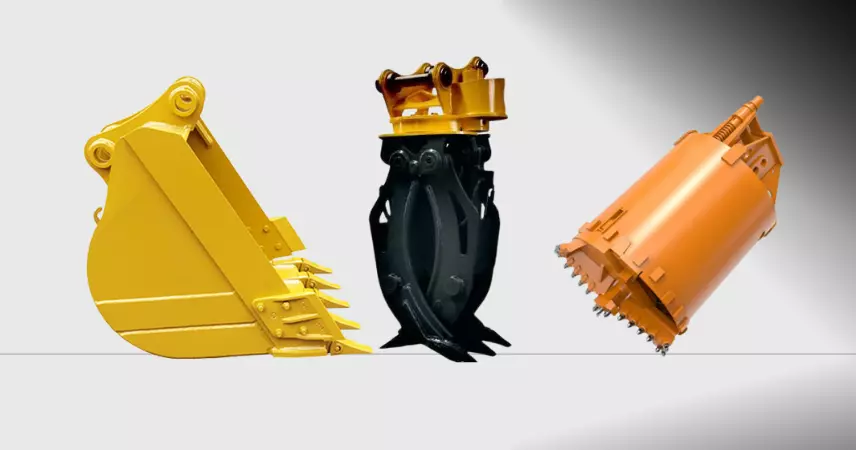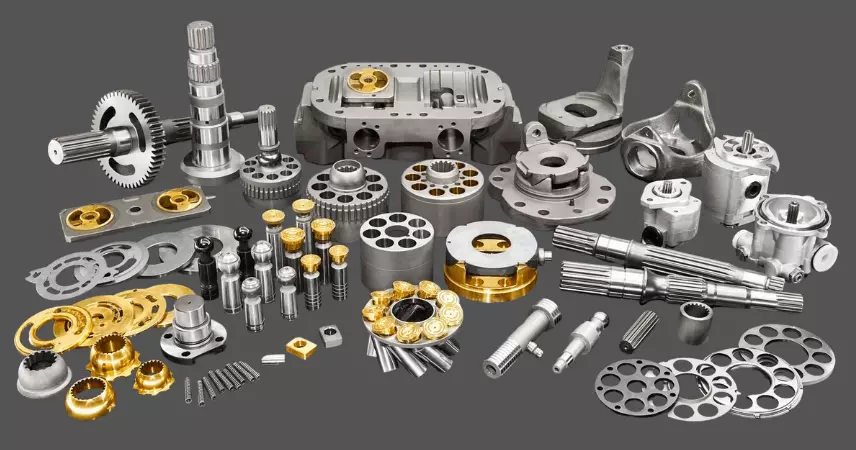+86-135 3388 0668
Introduction to Concentric Hydraulic pumps

In the realm of hydraulic systems, efficiency, reliability, and performance are the cornerstones of every design. Hydraulic pumps are integral to achieving these goals, and among the various types, the concentric hydraulic pump stands out as one of the most efficient and versatile solutions. Whether you’re working in agriculture, construction, or industrial machinery, understanding the concentric hydraulic pump and its benefits can significantly improve the functionality of your hydraulic systems.
A concentric hydraulic pump is designed to convert mechanical energy into fluid energy, creating the pressure needed to power hydraulic systems. Unlike other types of hydraulic pumps, the concentric pump’s unique design offers several advantages in terms of size, cost-efficiency, and power delivery.
The Working Principle of Concentric Hydraulic Pumps

The concentric hydraulic pump operates based on a simple yet effective principle. It features a set of gears arranged concentrically within a housing. The inner and outer gears work together to create fluid flow, ensuring that the fluid is delivered to the hydraulic system under the necessary pressure. The movement of the gears creates a continuous flow of fluid, which is critical in hydraulic systems where steady pressure is essential.
In concentric hydraulic pumps, the arrangement of the gears in the central shaft reduces the pump's size and weight compared to other designs. This smaller footprint makes it ideal for applications where space is at a premium, such as in mobile machinery and compact industrial equipment. Furthermore, the concentric design enhances efficiency by minimizing internal friction, which reduces energy loss during operation.
Key Benefits of Concentric Hydraulic Pumps
One of the main advantages of the concentric hydraulic pump is its compact size. This design reduces the need for a large and cumbersome system, which is especially beneficial in machines where space is limited. The ability to fit into smaller spaces without sacrificing performance makes it a popular choice in industries that require high power-to-size ratios.
Hydraulic systems rely on the conversion of mechanical energy into fluid energy, and the concentric pump excels at this task. Its gear configuration minimizes energy loss, making it one of the most efficient types of hydraulic pumps available. By reducing internal friction and optimizing fluid flow, it maximizes the overall performance of the hydraulic system, leading to more efficient operation and reduced energy consumption.
3. Cost-Effective Operation
The efficiency of concentric hydraulic pumps not only improves performance but also reduces operating costs. By requiring less energy to achieve the same results as larger pumps, the concentric pump contributes to lower energy bills, which is a significant advantage for companies looking to cut operational costs. Additionally, the pump’s design reduces wear and tear on components, leading to longer service life and reduced maintenance needs.
4. Reliability and Durability
Reliability is crucial in any hydraulic system, and the concentric hydraulic pump excels in this area. Its robust construction ensures that it can handle the demands of high-pressure applications without compromising performance. The low friction between its moving parts contributes to its durability, reducing the likelihood of breakdowns and extending the lifespan of the pump.
The concentric hydraulic pump’s ability to work in various applications across industries makes it highly versatile. From powering agricultural machinery to providing hydraulic power in construction equipment, the concentric pump is adaptable and capable of handling different fluid types and pressures. Its versatility ensures that it remains a staple in diverse industries, each with unique demands and requirements.
Applications of Concentric Hydraulic Pumps
The concentric hydraulic pump is utilized in a wide range of applications, thanks to its compact size, efficiency, and reliability. Some of the most common uses include:
Agricultural Machinery: Concentric hydraulic pumps are commonly used in tractors, harvesters, and irrigation systems. Their efficiency and compact size make them ideal for agricultural equipment that needs to operate in varying conditions.
Construction Equipment: In Construction Machinery like excavators, bulldozers, and cranes, the concentric hydraulic pump ensures that these heavy-duty machines can perform high-pressure tasks effectively.
Industrial Machinery: In factories and manufacturing plants, concentric hydraulic pumps help power various automated systems, press machines, and conveyor belts, ensuring seamless operations.
Automotive Industry: Hydraulic pumps, including the concentric type, are used in vehicle steering systems, lifts, and hydraulic braking systems to improve performance and safety.
Choosing the Right Concentric Hydraulic Pump
Selecting the right concentric hydraulic pump for your application involves considering several key factors. Here are some essential considerations when choosing the ideal pump for your hydraulic system:
1. Flow Rate and Pressure Requirements
One of the most important factors when choosing a concentric hydraulic pump is the required flow rate and pressure for the specific application. The pump needs to match the system's fluid flow and pressure requirements to ensure that it delivers the correct amount of power. Consulting with hydraulic engineers or pump suppliers can help determine the optimal pump specifications for your needs.
The type of fluid being used in the hydraulic system is also a crucial factor. Hydraulic fluids come in various forms, including oil, water, and emulsions, each with different viscosities. The concentric hydraulic pump should be compatible with the specific fluid to ensure smooth operation and minimize wear on the components.
3. Pump Size and Mounting Configuration
As mentioned earlier, the compact design of the concentric hydraulic pump makes it an excellent choice for space-constrained applications. However, it’s still essential to ensure that the pump size and mounting configuration are compatible with the system. Proper sizing is critical to ensure optimal performance and prevent excessive strain on the system.
4. Environmental Conditions
The Operating environment plays a significant role in the lifespan and performance of the concentric hydraulic pump. Harsh conditions such as extreme temperatures, high humidity, or exposure to contaminants can affect the pump’s efficiency. It's essential to choose a pump designed for the specific environmental conditions of your application to ensure long-term reliability.
5. Maintenance and Serviceability
Although concentric hydraulic pumps are known for their durability and low maintenance needs, it's still essential to consider the ease of maintenance when selecting a pump. Look for pumps with easily accessible parts and components that are simple to service and replace. Regular maintenance ensures the longevity of the pump and prevents costly downtime.
Future Trends in Hydraulic Pump Technology
As industries continue to push for greater efficiency, sustainability, and automation, the future of hydraulic pump technology, including concentric pumps, is evolving. In particular, there is a growing focus on developing pumps that consume less energy and can operate at higher pressures without sacrificing efficiency. Additionally, advances in smart technology and IoT integration are enabling pumps to become more intelligent, providing real-time performance data that can optimize system operations.
The rise of electric and hybrid-powered vehicles is also driving innovation in hydraulic pump designs. These systems require more compact and efficient pumps to meet the needs of electric drivetrains while maintaining power delivery. As a result, concentric hydraulic pumps will continue to evolve to meet the growing demands for more sustainable and high-performance hydraulic systems.
The concentric hydraulic pump represents a critical piece of technology in modern hydraulic systems. Its combination of compact design, efficiency, reliability, and versatility makes it the preferred choice in many industrial, agricultural, and construction applications. By understanding its functionality and benefits, businesses can harness the full potential of this technology to improve the performance of their machinery and reduce operational costs. As industries move towards more sustainable practices, the concentric hydraulic pump is sure to remain a key player in driving hydraulic power systems forward.
Search
Blog & News